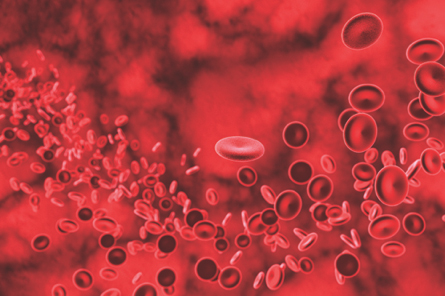Source: uniqure.com Jul 09, 2018 7 years, 7 months, 2 weeks, 3 days, 2 hours, 37 minutes ago
The treatment could relieve haemophilia B patients from factor IX replacement drugs
UniQure has enrolled the first patient in its registration trial of haemophilia B gene therapy candidate AMT-061 as it tries to keep ahead of a rival project from Spark Therapeutics/Pfizer.
The subject is the first out of around 50 subjects that will be recruited into the open-label HOPE-B trial of AMT-061, an adeno-associated virus (AAV) based gene therapy that will deliver a gene sequence for clotting factor IX, which is deficient in haemophilia B.
After a six-month lead-in period to get a background picture of bleeding rates and other baseline characteristics, the therapy is delivered by a single intravenous infusion. If it works as hoped, it could free haemophilia B patients from the current need for lifelong treatment with factor IX replacement drugs – potentially wiping out a multibillion dollar market.
The primary outcome measure in the study will be based on the factor IX activity level achieved after administration of AMT-061, with secondary endpoints including the need for Factor IX
replacement drugs and the annualised bleed rate. It’s due to generate preliminary results in 2020, but no doubt a lot of attention will be paid to interim data as it emerges throughout 2019 to see how the early recipients fare.
The start of the trial puts UniQure fractionally ahead of its main rival Spark Therapeutics in the haemophilia B gene therapy space. Spark and partner Pfizer are in the planning stages for a phase III trial of their
SPK-9001therapy and recently reported phase I/II data showing that it could substantially reduce bleed rates and factor IX replacement usage.
Another emerging competitor is UK start-up
Freeline Therapeutics, which has just raised around $112m to help advance its haemophilia B gene therapy candidate which has also shown early promise in clinical trials.
UniQure’s therapy is an improved version of its older AMT-060 candidate, which has been put through its paces in a phase I/II trial but was deemed in need for improvement despite showing signs of efficacy. AMT-061 has an eight- to nine-fold increase in factor IX activity, according to the Netherlands-based biotech.
UniQure has the distinction of being the first company to get approval for a gene therapy in Europe, winning a green light for its
Glybera (alipogene tiparvovec) product for the ultra-rare inherited disease lipoprotein lipase deficiency (LPLD) in 2012. Demand for the €1m therapy proved scant, however, and it was
taken off the market last year.
Nevertheless, the company has seen its share price rocket in recent months – rising more than 250% last year– on the promise
of its haemophilia B therapy as well as another candidate in development for Huntington’s disease, a neurodegenerative disorder with no approved therapies. That candidate – called AMT-130 – is due to start trials later this year.
Reference: https://uniqure.com/gene-therapy/hemophilia.php
